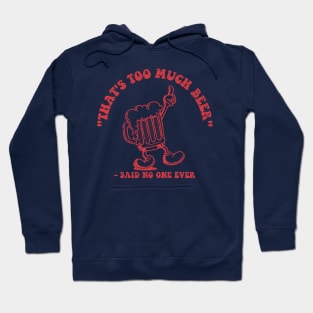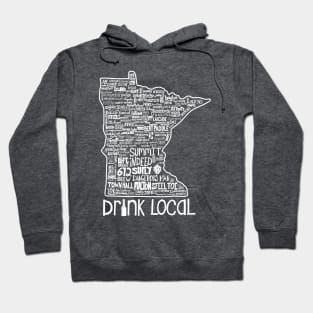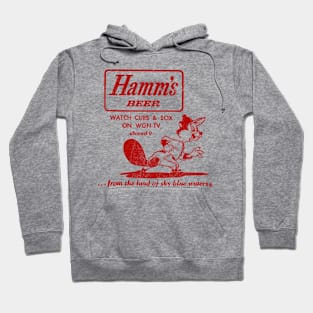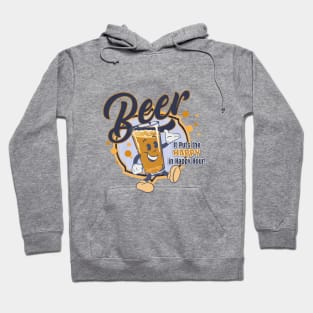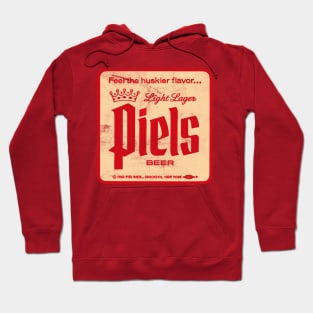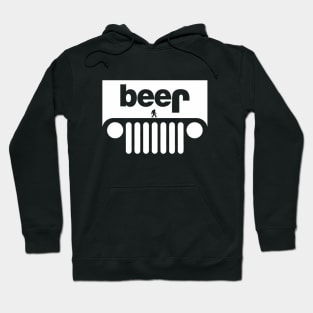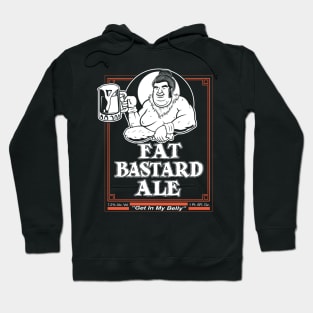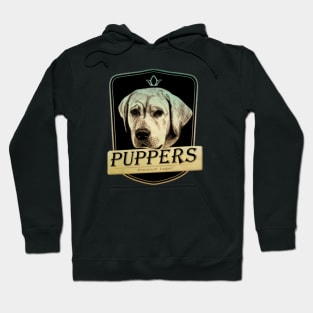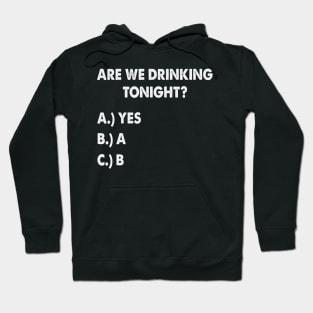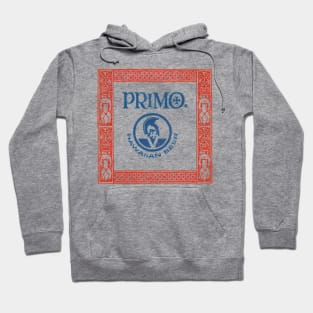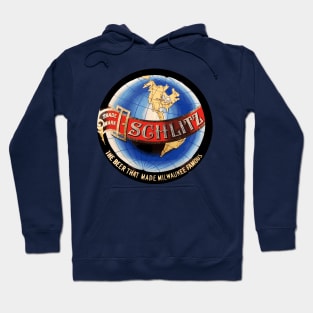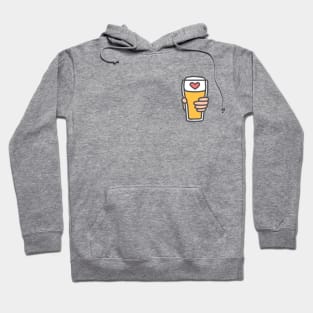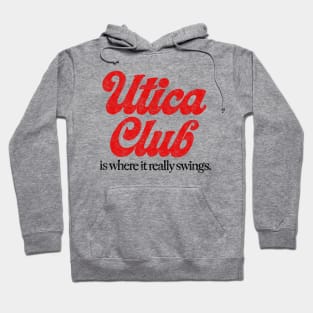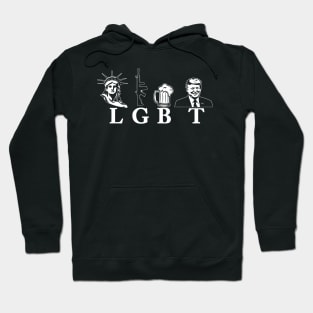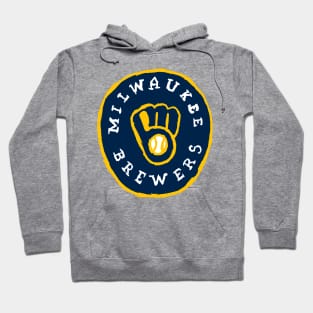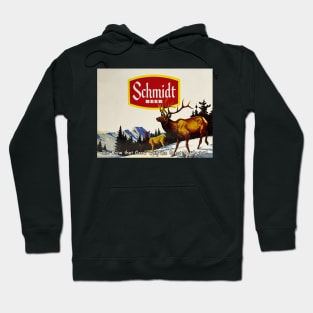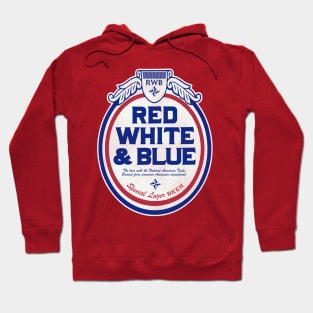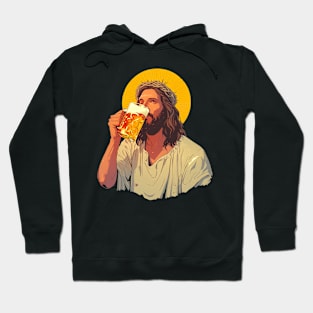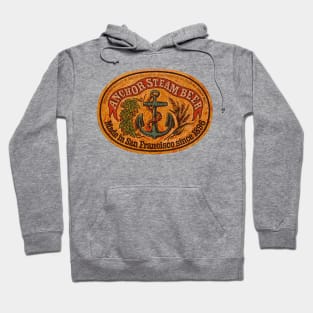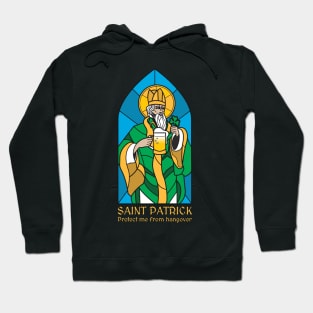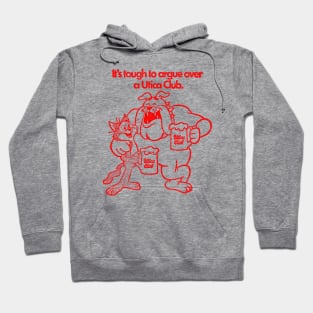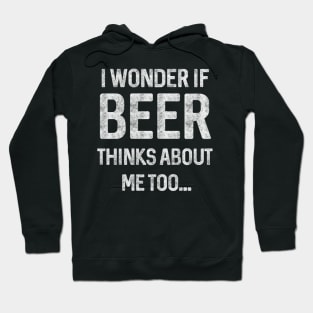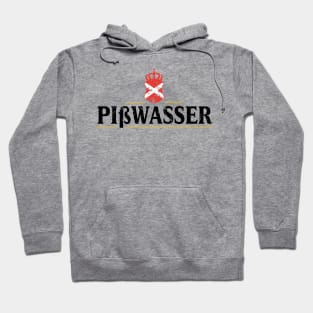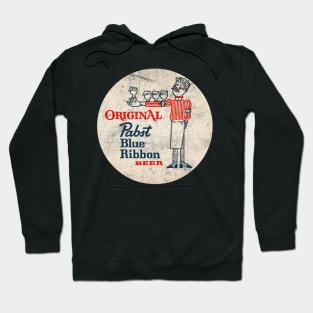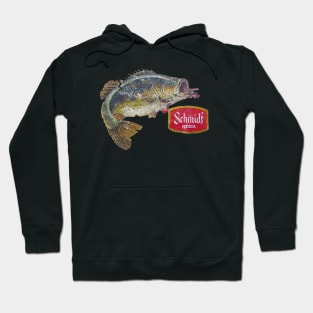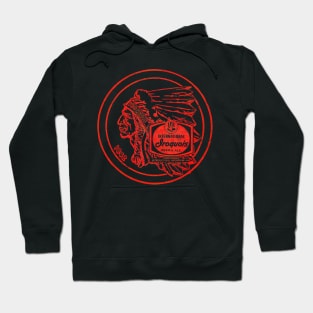Beer Lover Hoodies
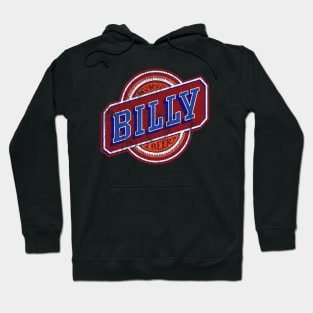
Description: Billy Beer was a beer first made in the United States in July 1977, by the Falls City Brewing Company.[1] It was promoted by Billy Carter, whose older brother Jimmy was the President of the United States.[2] In October 1978, Falls City announced that it was closing after less than a year of Carter's promotion. The beer was produced by Cold Spring Brewing, West End Brewing, and Pearl Brewing Company.

Description: The Iroquois Brewery was successor to the Jacob Roos Brewery, originally founded in 1842. Much of the Iroquois advertising that appeared after prohibition cites this 1842 date as the brewery's founding. The brewery was located between Hickory and Pratt Streets in Buffalo, N.Y. It was operated by Jacob Roos and, after his death, by George Roos, until 1892, when it was sold to Leonard Burgwerger. Burgwerger razed the buildings and built a new brewery on the site. This was the start of the Iroquois Brewing Company. Iroquois survived prohibition by brewing soda and near beer, and reopened shortly after prohibition ended in April 1933. Iroquois grew and prospered after prohibition and became the largest brewer in Buffalo.

Description: National Bohemian Beer, colloquially Natty Boh, is an American lager originating from Baltimore, Maryland. It was first brewed in 1885 by the National Brewing Company, but was eventually purchased by Pabst Brewing Company. Nearly 90 percent of National Bohemian sales are in Baltimore.

Description: The Iroquois Brewery was successor to the Jacob Roos Brewery, originally founded in 1842. Much of the Iroquois advertising that appeared after prohibition cites this 1842 date as the brewery's founding. The brewery was located between Hickory and Pratt Streets in Buffalo, N.Y. It was operated by Jacob Roos and, after his death, by George Roos, until 1892, when it was sold to Leonard Burgwerger. Burgwerger razed the buildings and built a new brewery on the site. This was the start of the Iroquois Brewing Company. Iroquois survived prohibition by brewing soda and near beer, and reopened shortly after prohibition ended in April 1933. Iroquois grew and prospered after prohibition and became the largest brewer in Buffalo.

Description: Apache was first introduced in 1934 by the Arizona Brewing Company and quickly became a popular brand in the local bars and taverns. Only offered on draught originally, the growing popularity of Apache quickly made the brewery’s primary brand. By the end of the year, the brewery announced the beer was available in bottles, and by the end of 1935, Apache Beer was available in cans and distributed throughout Arizona and parts of New Mexico and Texas securing its place as an early Southwest favorite. The Apache Beer can itself was short-lived, with new ownership in 1937, the canning line ceased operation and the Arizona Brewing Company would not produce another can until 1948.

Description: Lacey, Washington, was originally called Woodland after settlers Isaac and Catherine Wood, who claimed land there in 1853. When the railroad came through in 1891, residents decided it was time to apply for a post office. The request was denied because there was already a town called Woodland on the Columbia River. They decided to call the city Lacey and got a post office, though the city of wasn't officially incorporated until 1966. One year later, The Loose Caboose Tavern opened in Lacey, and quickly became a popular watering hole for the locals, many of which commuted to Olympia, Fort Lewis, and to some extent, Tacoma, for work, but came how every night to tie one on at their favorite tavern,
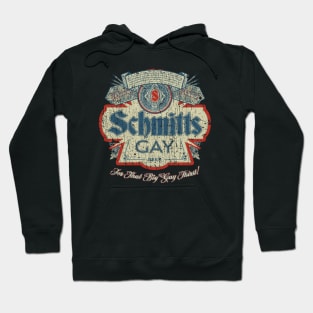
Description: This is the famous Schmitts Gay. We know of no other brand produced by any other brewer that comes even close to being this gay. Our exclusive rainbow refraction filtration process produces a taste, a smoothness, and super gay drinkability that you will find in no other beer at any price. Schmitts is brewed with pride in Provincetown, Massachusetts, so next time you've got a big gay thirst, grab a Schmitts Gay.
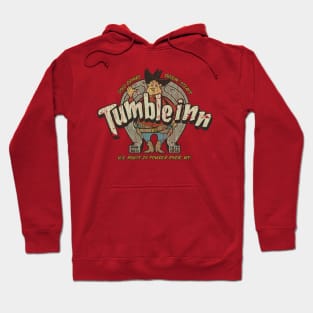
Description: Powder River, Wyoming is little more than a ghost town these days, but it used to have two restaurants, a motel, and a gas station, supporting not just locals and travelers along the U.S. 20 highway, but also the Standard Oil refinery. Now all that remains is an elementary school, a post office and a handful of very rural residences. One of those restaurants was the Tumble Inn, a roadhouse in every sense of the word. The log cabin housing the Tumble Inn was moved to Powder River from Ten Sleep, Wyoming, in 1923 and operated as several businesses before the Tumble Inn took up residence in 1942. With a full bar and kitchen, the Inn kept passersby happy for decades, but after the refinery closed, things slowed and topless dancers were added.
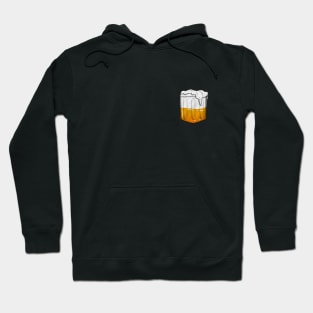
Description: cold beer design on a side pocket shirt that represents the funny concept of beer never broke my heart , because it is on the heart to feel warm and cosy with it , cold beer funny shirt is gonna be with you whenever you go if you wear it
Beer Lover gift for all the beer lovers who want to show their love for beer Hoodie
by A Comic Wizard
$45
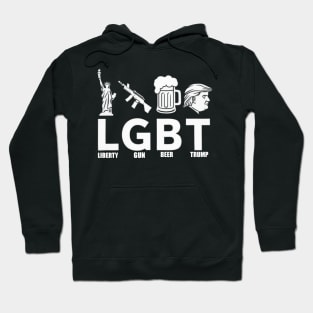
Description: Make a statement with our "Donald Trump LGBT Parody" T-shirt. This clever design redefines LGBT as Liberty, Gun, Beer, and Trump, offering a humorous take on political apparel. Ideal for fans of Donald Trump who appreciate a fun and bold approach to expressing their views. Crafted from soft, premium fabric, this T-shirt is both comfortable and long-lasting. Wear it to rallies, gatherings, or casual outings to spark conversations and laughs.
Donald Trump LGBT Parody T-Shirt: Liberty, Gun, Beer, and Trump Hoodie
by handdrawnillustrationart
$45

Description: With a name giving a nod to the American flag, it seems appropriate that Red White & Blue Beer (RWB) was first introduced in 1899, just in time for the 4th of July weekend. Early ad campaigns extolled the beer’s mellow taste, drinkability, and low price point, the one that got plenty of mileage out of their “honest beer for an honest price” slogan. The patriotic themed cans and rock bottom price point made RWB a hit right out the gate, and while prohibition briefly killed the brew in 1920, it was resurrected with the 1933 repeal, and didn't miss a beat. RWB picked up where they left off and continued on to become a favorite working man's beer in the '50s and '60s, and continued to be brewed well into the '90s before finally fading away.
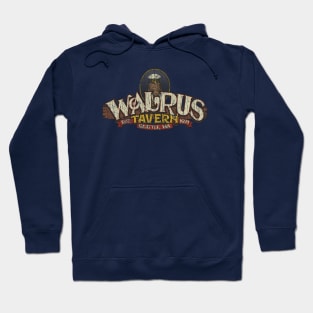
Description: Located in Seattle's Greenwood neighborhood, the Walrus Tavern was a legendary live music venue that hosted countless blues and rock 'n roll shows over the years. When it wasn't playing host to local bands and all-time great blues singers, the tavern was a true neighborhood watering hole, providing frosty libations and reliable tavern food. Unlike most places, the Walrus didn't close up shop for lack of customers or ever-increasing rents, rather it burned to the ground in 1984. The concrete pad it sat on remained vacant for decades until another bar opened up next door and annexed the Walrus pad as a beer garden, aptly named 'The Walrus Beer Garden.'

